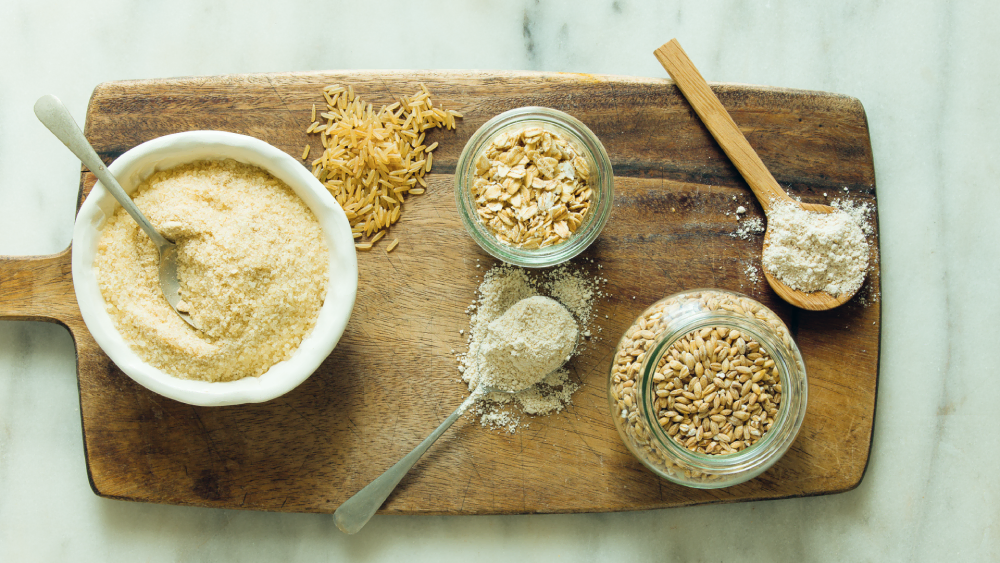Baby rice and cereal as a first food is pretty normal, right? Yes, up until a few years ago, baby rice and cereal was the obvious choice for a baby’s first taste of solids. This was because there was a train of thought that suggested that very simple foods would reduce the likelihood of developing allergies. In other words, processed rice cereal had a low allergy risk and it was safer to introduce more nutritious food later in the weaning process. Makes sense, right? Wrong. The trend of offering rice cereal as a first food has been around for decades but research has shown us that there is a better, more nutritious way to approach first foods.
As an Occupational Therapist, I am committed to staying up to date with the latest scientific research to help guide parents to making the best possible decisions for their baby. I’m also a mom who loves healthy eating and wholefoods so the idea that we can skip the processed foods for real foods is something I can get on abord with. Let’s find out what the research says.
Research Insights: Baby Rice and Cereal as a First Food – What You Need to Know
For the longest time, we’ve been fed misinformation about allergens and warned that exposing our babies to certain foods would increase the possibility that they will develop allergies. That’s why some schools of thought recommend weaning later than 6 months and sticking to very bland, ‘low risk’ foods. But research shows us that the introduction of foods between 17 and 24 weeks does not increase the risk of allergies to that food. In fact, introducing a food type much later (after 7 months) poses a greater risk for allergies. And surprisingly to some, the research also indicates that early exposure to foods (even through the placenta and breast milk) may be protective against allergies. So, we are no longer avoiding variety and common allergens when we start solids.
And it’s not only the physiological reaction to food that we’re talking about. Findings in the research point to the fact that early exposure to a variety of flavours and foods (i.e. before 7-8 months), decreases the likelihood of fussy eating in the toddler years. What a relief!
So, the resounding message to come out of the science is to offer your baby a variety of nutritious food rather than sticking to the blandness of rice cereal. Read more about introducing allergens here.
Replicating Breast Milk Nutritional Composition: A New Approach to First Foods
So, what is an appropriate alternative to rice cereal? The guiding principles for first foods now focuses on replicating the nutritional composition of breast milk, specifically in terms of the ratio of carbs versus fats. Breast milk is mostly water with 55% fats, 37% carbs and 8% proteins. Considering that baby rice and cereal is predominately processed carbohydrates – it is a huge shift for your baby’s gut from what they are used to.
What do we mean by replicating the nutritional value of breast milk? First of all, we’re choosing wholefoods over processed ones. That means fruits and vegetables as a source of carbohydrates and nutrients. We also want to include healthy fats, such as avocado and nut butters to make up that component of breast milk. So, instead of cereal, you could offer your baby mashed sweet potato or butternut squash with a spoon of almond butter mixed in or mashed banana mixed with avo is a great alternative, too!
Leading Clinical Paediatric Dietician and advisor on the Parent Sense app, Kath Megaw, shares an incredible amount of practical wisdom in this podcast about weaning your baby the sensible way. Have a listen for some great insights!
Promoting Healthy Weaning: Alternatives to Baby Rice and Cereal
This shift in thinking is the foundation for a science-based approach to weaning. One that encourages the introduction of a wide variety of foods, flavours and allergens early – as early as 4 months or 17 weeks. It also means relying less on processed, store bought foods in favour of fruits, vegetables and hormone-free proteins. And if you want to introduce grains, look at options such as quinoa, oats and unprocessed rice rather than baby rice cereal.
Want to know more about successfully weaning your little one? Get your copy of the best selling Weaning Sense book filled with delicious weaning recipes to try. Or sign up for the Weaning Sense online course for a step-by-step guide to weaning straight from the experts.




